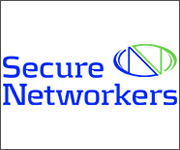 |
||||||||||||||
| Past Issues | Subscribe | Send to a Friend | www.tagitm.org | ||||||||||||||
July 31, 2019 |
||||||||||||||
As a result of recent cybersecurity legislation, the TAGTIM Board is undertaking an effort to create a closer partnership with DIR, specifically related to the implementation of HB 3834 – Cybersecurity Training and SB 64 – Cybersecurity events as a disaster and the establishment of an Information Sharing and Analysis Organization (ISAL). However, the board would like to leverage this opportunity to create a greater partnership with DIR on various programs that impact local government.
By Lucian Constantin, ITWorld.com
Researchers have found 11 serious vulnerabilities in VxWorks, the world's most popular real-time operating system (RTOS) that powers over 2 billion devices including enterprise network firewalls and routers, industrial controllers and medical equipment. Many of the flaws allow attackers to take over devices remotely by just sending network packets, which make them particularly dangerous.
By Lucas Mearian, ITNews.com
Hoping to raise awareness about blockchain vulnerabilities, cybersecurity firm Kudelski Security next week plans to launch the industry’s first "purposefully vulnerable" blockchain - and will demo it at next month's Black Hat conference. Kudelski Security’s FumbleChain project is aimed at highlighting vulnerabilities in blockchain ecosystems, according to Nathan Hamiel, head of cybersecurity research at Kudelski.
By Nathan Eddy, Healthcare IT News
The healthcare industry had the highest cost of a data breach for the ninth consecutive year, costing organizations nearly $6.5 million on average - more than 60% higher than other industries. These were among the findings of the "Cost of a Data Breach Report" from IBM Security and Ponemon Institute, which also revealed it took the healthcare industry 236 days to identify a breach and 83 days on average to contain a breach on average - nearly two months longer than the average across other industries.
By Alfred Ng and Mark Serrels, CNET
According to Capital One, data from more than 100 million U.S. citizens and 6 million Canadian residents has been stolen by a hacker. If you applied for a credit card from the U.S. bank between 2005 through 2019, your information is likely part of this breach, reads the statement.
|
||||||||||||||





